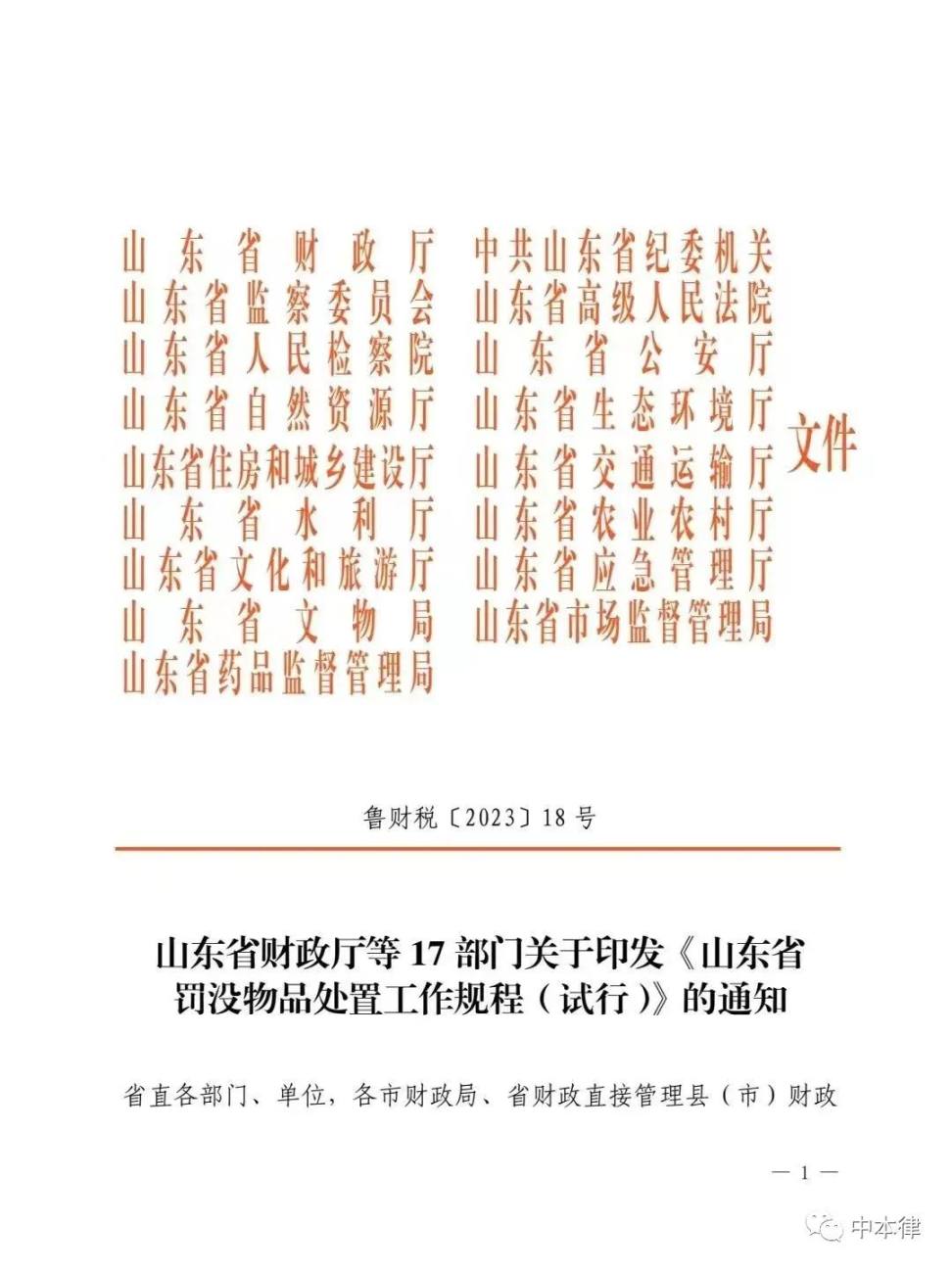The first local government regulations mention the disposal of "virtual currency".
Author: Liu Yang

On August 25, 2023, the Shandong Provincial Department of Finance and 17 other departments issued the "Shandong Provincial Confiscated Items Disposal Work Process (Trial)" (hereinafter referred to as the "Notice"), which, in terms of legal hierarchy, belongs to local government regulations. Local government regulations are formulated by the people's governments of provinces, autonomous regions, municipalities directly under the Central Government, prefecture-level cities, and autonomous prefectures in accordance with laws, administrative regulations, and local regulations of the province, autonomous region, or municipality directly under the Central Government.
Lawyer Liu Yang singled out and analyzed the part involving virtual currency in the "Notice".
Article 36 of the "Notice" specifies: "Law enforcement agencies may negotiate with merchants who issue prepaid cards and virtual currency that have been confiscated according to law, and the merchant may offer to repurchase. The repurchase price shall be agreed upon by both parties and shall generally not be less than 80% of the face value or balance of the virtual currency or prepaid card. A repurchase agreement shall be signed by both parties."
The lawyer believes that the "Notice" does not clearly define whether "virtual currency" includes virtual digital currencies represented mainly by Bitcoin, Ethereum, and Tether. If it includes the aforementioned virtual digital currencies, the provision has the following regulatory implications: First, it can only be negotiated with the issuer of the virtual digital currency, so Bitcoin and Ethereum can find the corresponding foundation, and Tether can find Tether Company. The "Notice" does not allow selling to third-party companies. Second, it must be repurchased by the issuer and not less than 80% in substance. The lawyer believes that if it includes virtual digital currencies, this provision would be difficult to implement in practice. Firstly, does the issuer have the intention to repurchase? If the issuer is unwilling to repurchase, how should it be disposed of? Even if the issuer is willing to repurchase, is it feasible for judicial authorities to directly sign contracts with overseas entities? How should legal disputes arising from the relevant repurchase agreements be handled?
The lawyer is more inclined to believe that the "virtual currency" mentioned in the "Notice" still refers to virtual currencies with domestic issuers and strong centralization, represented by Q coins and Dou coins.
If the virtual currency mentioned in the "Notice" does not include the virtual digital currencies we commonly refer to, what should be done? **Article 40 of the "Notice" stipulates: "If the above disposal methods are not applicable to confiscated items, law enforcement agencies shall study and propose disposal suggestions based on the nature and classification of the confiscated items, consult with the same-level finance and other departments, propose disposal plans, and report to the higher-level finance department for the record." Then the disposal of virtual digital currencies returns to an embarrassing situation without a basis.
Under what circumstances can pre-disposal be carried out before determining it as a confiscated item? **Article 45 of the "Notice" clearly states: "… (3) Financial assets such as bonds, stocks, and fund shares with large market price fluctuations…" Does Bitcoin and other virtual digital currencies fall into this category? The lawyer believes that according to the existing laws and regulations in China, *Bitcoin and other virtual digital currencies do not fall into the category of financial assets,* and therefore do not meet the conditions for pre-disposal.
However, in practice, law enforcement agencies often dispose of virtual digital currencies before the effective judgment, and their legal basis and reasons mainly rely on the "voluntary consent of the suspect (defendant, party)". Article 46 of the "Notice" clearly states: "Items for pre-disposal must be agreed upon by the rights holder or submitted with a written application by the rights holder, and approved by the person in charge of the law enforcement agency before they can be pre-disposed of according to law." That is, if the rights holder does not agree to the pre-disposal of virtual digital currencies, the judicial authorities have no right to pre-dispose of them before the effective judgment, and the price of virtual digital currencies fluctuates greatly. Once disposed of, it is difficult to restore to the original state. Therefore, the lawyer suggests that rights holders should fully consider the relevant legal risks when agreeing to the pre-disposal of virtual digital currencies.
免责声明:本文章仅代表作者个人观点,不代表本平台的立场和观点。本文章仅供信息分享,不构成对任何人的任何投资建议。用户与作者之间的任何争议,与本平台无关。如网页中刊载的文章或图片涉及侵权,请提供相关的权利证明和身份证明发送邮件到support@aicoin.com,本平台相关工作人员将会进行核查。



